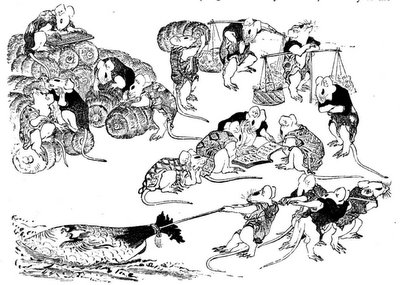Krugman

So who are the winners from rising inequality? It's not the top 20 percent, or even the top 10 percent. The big gains have gone to a much smaller, much richer group than that.
A new research paper by Ian Dew-Becker and Robert Gordon of Northwestern University, "Where Did the Productivity Growth Go?," gives the details. Between 1972 and 2001 the wage and salary income of Americans at the 90th percentile of the income distribution rose only 34 percent, or about 1 percent per year. So being in the top 10 percent of the income distribution, like being a college graduate, wasn't a ticket to big income gains.
But income at the 99th percentile rose 87 percent; income at the 99.9th percentile rose 181 percent; and income at the 99.99th percentile rose 497 percent. No, that's not a misprint.
Just to give you a sense of who we're talking about: the nonpartisan Tax Policy Center estimates that this year the 99th percentile will correspond to an income of $402,306, and the 99.9th percentile to an income of $1,672,726. The center doesn't give a number for the 99.99th percentile, but it's probably well over $6 million a year.
Why would someone as smart and well informed as Mr. Bernanke get the nature of growing inequality wrong? Because the fallacy he fell into tends to dominate polite discussion about income trends, not because it's true, but because it's comforting. The notion that it's all about returns to education suggests that nobody is to blame for rising inequality, that it's just a case of supply and demand at work. And it also suggests that the way to mitigate inequality is to improve our educational system - and better education is a value to which just about every politician in America pays at least lip service.
The idea that we have a rising oligarchy is much more disturbing. It suggests that the growth of inequality may have as much to do with power relations as it does with market forces. Unfortunately, that's the real story.
Should we be worried about the increasingly oligarchic nature of American society? Yes, and not just because a rising economic tide has failed to lift most boats. Both history and modern experience tell us that highly unequal societies also tend to be highly corrupt. There's an arrow of causation that runs from diverging income trends to Jack Abramoff and the K Street project.
And I'm with Alan Greenspan, who - surprisingly, given his libertarian roots - has repeatedly warned that growing inequality poses a threat to "democratic society."
Edwin, ♥s












No comments:
Post a Comment